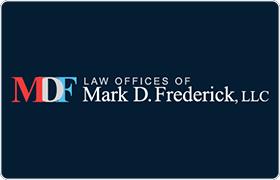 Fairbanks Adoption Lawyers, Louisiana
Fairbanks Adoption Lawyers, Louisiana
Sponsored Law Firm
-
 x
x

Click For More Info:
-
The Law Offices of Mark D. Frederick, LLC
2800 Youree Drive Suite 400 Shreveport, LA 71104» view mapDivorce & Family Law Committed, Concerned Shreveport Attorney
Versatile, client-focused Mark D. Frederick established his law practice nearly a quarter-century ago for one reason: to help those facing a crisis involving the legal system.
318-868-7300
Not enough matches for Fairbanks Adoption lawyer.
Below are all Fairbanks Divorce & Family Law lawyers.
Sponsored Lawyers
1-6 of 6 matches
Accident & Injury, Divorce & Family Law, Estate, Wills & Probate
Mary Bryant is a practicing lawyer in the state of Louisiana.
(more)Divorce & Family Law, Social Security, Lawsuit, Criminal
Greg Elias loves to try cases. He is also highly regarded among Monroe divorce law attorneys as being a skillful Monroe divorce lawyer. You can depend on him to observe, analyze, and litigate every facet of a case. Winning may not be everything in some fields of endeavor. But Greg Elias goes at it to win. Secure his legal services in Louisiana and prepare for the best part of what your lawyer loves to do, to win your case. Greg Elias is also an experienced automobile accident attorney who focuses on each detail of the accident. His persistence and willing determination to achieve proper results is what makes him unique. He looks to retain compensation from the negligent party Placed by Judge of Louisiana as Federal Indigent Defender, Board of Louisiana.
(more)


 Mark Frederick Shreveport, LA
Mark Frederick Shreveport, LA Practice AreasExpertise
Practice AreasExpertise


